The paradox of Donald Trump in three new books
In year four of their respective terms, George W. Bush and Barack Obama enjoyed a mixed press. Some accounts lauded them, others were sceptical. The assessments were uniformly partisan. The titles of contemporary books reflected how Republicans backed Bush (he was ‘The Right Man’), Democrats Obama (for successfully ‘Bending History’). Donald Trump, on the other hand, stands as one of the most vilified presidents in American history, from all points of the spectrum. Indeed, these books together make the case that the forty-fifth president is a man so psychologically flawed he poses a clear and present danger to American democracy.
These three books represent a broad, frontal assault on the Trump presidency. They come from the progressive left (Mary L. Trump), the media-left (Philip Rucker and Carol Leonnig), and the right (John Bolton). Worse for Trump supporters is the proximity each author has to their subject. These books deal in firsthand accounts of his character and behaviour, before and during his White House tenure. Given this, their accounts are not easily dismissed as ‘fake news’, as Trump has predictably done. Mary Trump is his niece. Rucker and Leonnig, journalists, have spent hours in the White House Press Room. Bolton was the president’s longest-serving national security advisor (2018–19). These are people who know Trump well in the major settings of his career: family, media, and office.
They do not paint a flattering picture.
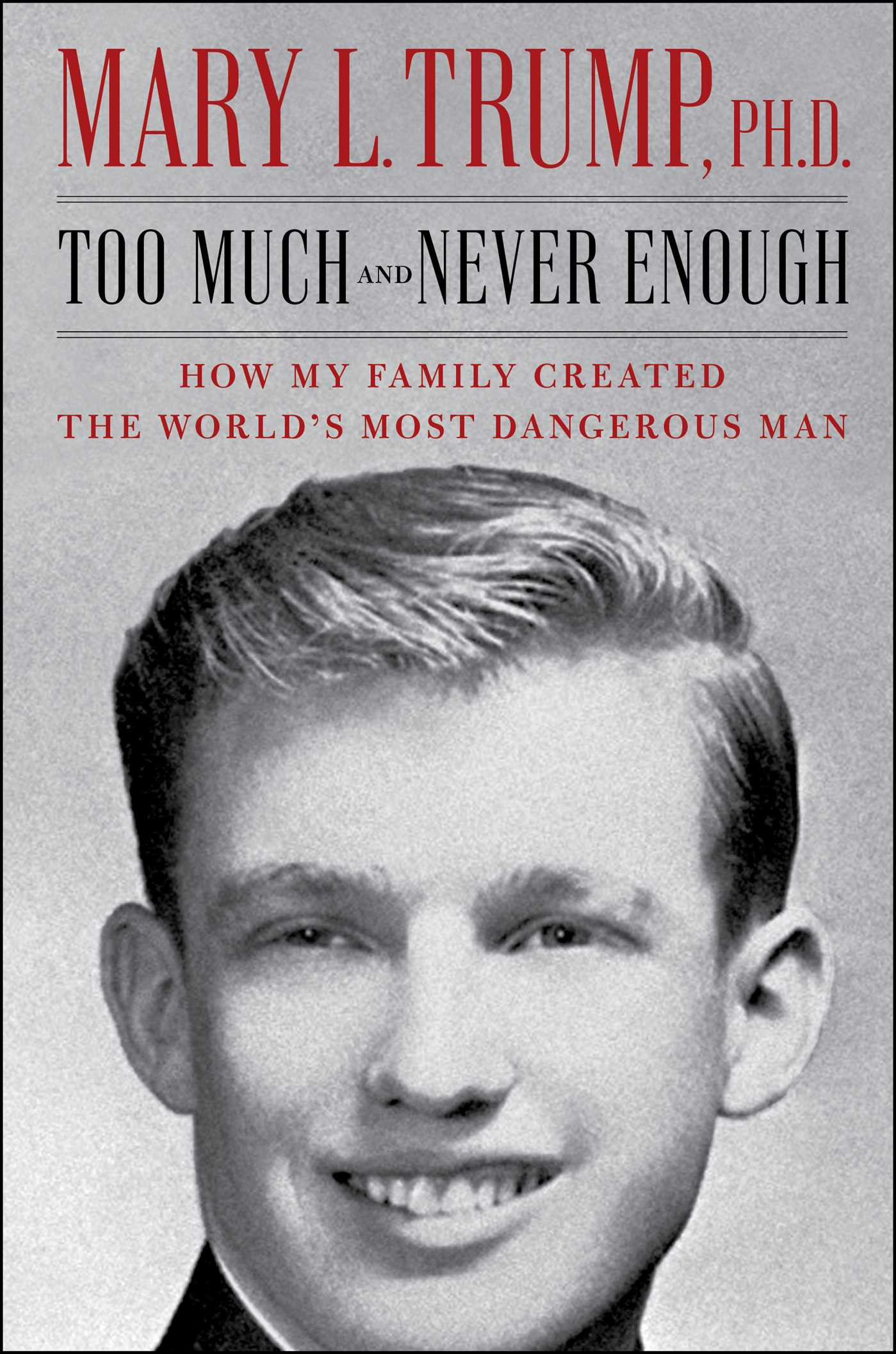 Too Much and Never Enough: How my family created the world’s most dangerous man by Mary Trump
Too Much and Never Enough: How my family created the world’s most dangerous man by Mary Trump
Simon & Schuster, $32.99 pb, 236 pp
Buy this book
Mary Trump, in her book Too Much and Never Enough: How my family created the world’s most dangerous man, depicts a bipolar family. At one pole is Fred Sr, the sociopathic patriarch. At the other, the saintly Fred Jr, his elder son, Donald’s brother and the author’s father – the victim. The book is an accounting of Jr’s demise at the hands of Sr and his ‘toxic’ patriarchy. This bipolarity makes the book intelligible, predictable even, but at the price of psychological nuance. Mary’s first concern is the grinding of a familial axe. The legal travails of father and then daughter linger across the narrative. She feels, probably rightly, gypped out of her share of her family inheritance – though one suspects this book will earn her much more.
The defence of her father is genuine and sustained throughout. Indeed, the book makes clear that both Fred Jr and his brother Donald were differently victimised by Fred Sr. Donald turned his father’s bullying, status-is-everything parenting into an emotionally cold but highly successful pursuit of wealth and then power. His brother (‘Freddy’) was crushed by it, dying of alcoholism at the age of forty-two. (Donald has been resolutely teetotal, in part, in reaction to this.)
Despite Mary Trump’s credentials as a trained clinical psychologist, the psychological profiling is humdrum – can there be an easier discipline to sound vaguely competent in than psychology? Bad dad produces children variously affected by that badness. The stories are voyeuristically fascinating – all family dynamics, because of their essential privacy, are. None of us knows what is really going on next door. So to be told in gory detail what afflicts America’s First Family holds the reader’s attention.
In 1953, when Donald was seven, Freddy, in a bid to stop his young brother’s taunts, tipped a bowl of mashed potato on his head. The humiliation of this, according to Mary, still stings the president. ‘From then on,’ Mary tells us, ‘he would wield the weapon [of humiliation], never be at the sharp end of it.’
The psychological profile and compilation of anecdotes would just about hold the work together. The book is very readable, and compact. What greatly reduces its cogency is the plodding partisanship the author thinks matters to her account. This becomes a study in tedium. A fan of Hillary Clinton, ‘the most qualified presidential candidate in the history of the country’, who, like her, was denied a rightful inheritance by Donald Trump, Mary Trump wants us to know her book is animated by the justice of Hillary’s cause. Their respective accounts of being swindled by Trump have netted them millions, but, according to Mary, have cost the United States much more: lives, dignity, reputation.
 A Very Stable Genius: Donald J. Trump’s testing of America by Philip Rucker and Carol Leonnig
A Very Stable Genius: Donald J. Trump’s testing of America by Philip Rucker and Carol Leonnig
Bloomsbury, $29.99 pb, 465 pp
Buy this book
For regular readers of the Washington Post, Rucker and Leonnig’s book A Very Stable Genius: Donald J. Trump’s testing of America may seem like déjà vu. Because it uses their reporting as a basis for the narrative, even though buttressed by subsequent research, there is much here that will sound familiar. Although they clearly disdain their subject, their account suffers less from a liberal bias than from a mood of permanent crisis. Because the book is largely assembled from their published journalism, each episode builds toward a climax that is never realised. The fierce urgency of now, which makes newspapers so compelling, is less effective in retrospective.
The Mueller investigation (2017–19) is central to the narrative. Despite the effort to re-enact scenes they did not witness, this makes for some tired fare. Trump, though wounded, survived both it and the impeachment it presaged. These extensive campaigns to remove him fizzled. Yet reading this book, we get the impression that Trump’s crimes were so self-evident, so discoverable, that impeachment was bound to succeed.
Democratic attempts to land the fatal blow are forever imminent and inevitable. Just one more transgression and we’ll have him. But it is Trump who endures. Allies and enemies come and go; the text offers a sure guide to the highest White House staff turnover rate in US history. But Trump’s opponents are similarly revolving. Robert Mueller (a Republican), Nancy Pelosi (a Democrat), James Comey (the FBI chief sacked by Trump), and the president’s former lawyer Michael Cohen (an intimate) – none becomes the decisive or even cumulative threat the authors expect them to be.
The impeachment the book builds toward but does not cover (going to press before the hearings started in February 2020) now seems such old news. Set against the myriad dislocations of Covid-19 and Black Lives Matter, the attempts by ‘the Washington élite’ (Trump’s favourite opponent) to erase the result of the 2016 election, documented by Rucker and Leonnig, look trivial.
For Rucker and Leonnig, as their book title suggests, Trump is a case study of functioning narcissism. His ‘impulsivity’ is the most indexed trait in their account (nineteen references), next his ‘image focus’ (seventeen), ‘ignorance’ (sixteen), ‘paranoia’ (fifteen), ‘lying’ (ten), and ‘hunger for praise and recognition’ (nine). This listing is not exhaustive. Despite these emphases, there is no real analysis of his psychology, as foreshadowed by the title, just the welding together of ‘gee Trump is just terrible’ stories, with far too much time devoted to the failed Mueller report. What an exercise in futility that seems in retrospect. But for Democrats it was the key to unlocking Trump’s impeachment. The book does not get that far.
 The Room Where It Happened: A White House memoir by John Bolton
The Room Where It Happened: A White House memoir by John Bolton
Simon & Schuster, $35 pb, 577 pp
Buy this book
Left-wing bias is not something of which John Bolton has ever been accused. For that reason, his indictment of Trump in The Room Where It Happened: A White House memoir should represent the severest test for the president’s supporters. When ‘Never Trumpism’ was the preserve of the liberal left, the sentiment could be dismissed as just a product of an increasingly polarised political system. But when a lifelong conservative, over nearly 600 detailed pages, expresses his frustration with the president, Trump’s character becomes unavoidably the issue.
Bolton does not describe a president thwarted by the forces of liberal internationalism – the theme of his earlier book on George W. Bush and the United Nations – but by his own conduct. Bolton’s Trump lacks strategic vision and is ‘stunningly uninformed’. The author’s claim that Trump was surprised to know that the United Kingdom was a nuclear power has entered diplomatic folklore.
Throughout the book we are presented with a president who equates his personal warmth with foreign leaders with America’s national interests. If he and Putin/Kim/Erdoğan get on, that is, ergo, good for the United States. Bolton provides a devastating account of the failure of this maxim in regard to all three strongmen. The story of Trump’s short-lived ‘bromance’ (Bolton’s word) with Kim Jong-un is especially compelling. The DPRK leader outfoxes the US president at every turn, claims Bolton, despite the NSA’s best efforts to educate him.
I note that this should but likely will not perturb Trump’s base very much. As an advocate of hawkish militarism and free trade, Bolton represents that part of the Washington establishment Trump has been chiding for decades. The wonder, then, is why he imagined Bolton would serve his purposes as national security advisor and, in comparative terms, for so long (almost eighteen months). Trump subsequently dismissed him as a ‘dumb warmonger’, echoing North Korea’s ‘human scum’ appellation. Bolton wears both monikers with honour here.
While all three books have a descriptive richness born of access and animation born of anger, neither singularly nor collectively do the authors explain the Trump phenomenon. We get much of the ‘what’, ‘when’, and ‘where’ of Trump. None applies themselves enough to the ‘why’. Each treats Trump as an aberration. This only gets us so far. This is a man, after all, love him or hate him, who has transformed American, possibly even global, politics. His ignorance, racism, sexism, duplicity, and narcissism, all asserted and documented here, have not prevented him from becoming the most consequential leader since the end of the Cold War. There is a paradox that these books illustrate but cannot resolve: why is a man so chaotic, so reviled, so malignant also so transformational?
Each author is bemused by his behaviour when the real target of their enquiries should be his support. Mary Trump invites us to think of him as Claudius, Hamlet’s wicked uncle. But one of the most important features of that greatest of plays is Elsinore’s embrace of this usurper. What is so rotten in the United States that Trump is viewed as the cure for it? The niece has not much to tell us about America’s receptivity to Uncle Donald. Her lumbering partisanship is why Democrats no longer have appeal in constituencies for whom her uncle now speaks.
Rucker and Leonnig, similarly, do not account for his transformative power. Rather than offering an account of his appeal, they retell failed steps to remove him. Even Bolton, a man simpatico with any number of conservative leaders, fails to grasp Trump’s populism. I was fascinated in different ways by each book but left all of them still unsure why nearly sixty-three million Americans voted for the clown depicted in them – and very likely will do so again.
That lacuna will be filled in the years and decades after he leaves office. Some nascent explanations include a political establishment discredited by botched wars in the Middle East, a trade policy that enabled China’s rise at the expense of too many American workers, and a financial crash in which welfare for bankers took priority over help for blue-collar mortgagees.
Covid-19 hit too late for proper treatment by the authors. What is remarkable is how far Trump’s myriad disasters in its handling have not yet signed his political death warrant. His re-election is distinctly possible, even if current polling suggests that it is improbable. To understand why that is the case, books about Trump in future will have to wrestle with a rock-solid base that does not read books. None of these three books does that.







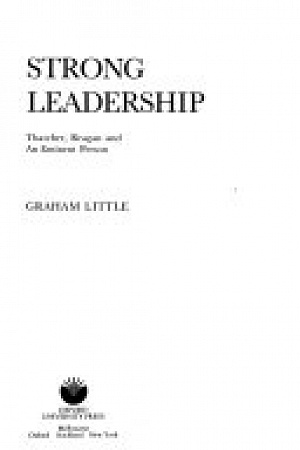
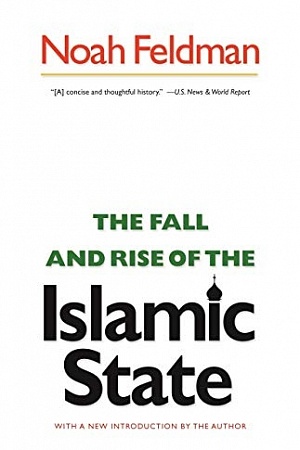
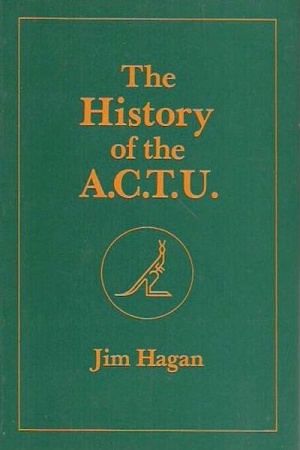
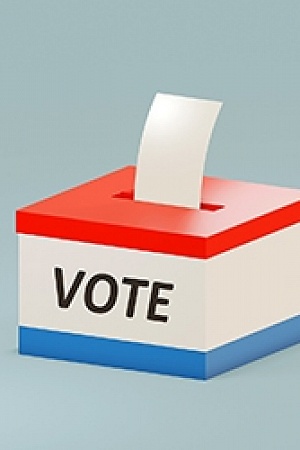



Leave a comment
If you are an ABR subscriber, you will need to sign in to post a comment.
If you have forgotten your sign in details, or if you receive an error message when trying to submit your comment, please email your comment (and the name of the article to which it relates) to ABR Comments. We will review your comment and, subject to approval, we will post it under your name.
Please note that all comments must be approved by ABR and comply with our Terms & Conditions.